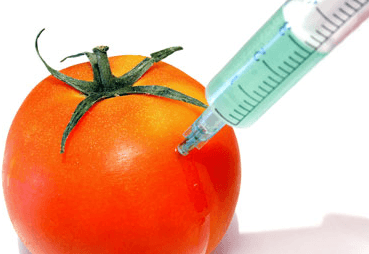Peasant farmers warn Ghanaians against eating GMO foods at Christmas
 The genetically modified organisms (GMOs) debate won’t die down any time soon in Ghana. The country has passed the Biosafety Law and presidential assent was given on December 31, 2011. The country has a plan to commercialise GMOs by 2018, but there are contentions on the matter.
The genetically modified organisms (GMOs) debate won’t die down any time soon in Ghana. The country has passed the Biosafety Law and presidential assent was given on December 31, 2011. The country has a plan to commercialise GMOs by 2018, but there are contentions on the matter.
The Peasant Farmers Association of Ghana (PFAG), a pressure group, has called on Ghanaians to be careful not to eat GMO products during this Christmas. Ghanaians do a lot of cooking during the season.
In a press release copied to ghanabusinessnews.com, PFAG says it is alarmed by the influx of GMO products onto the Ghanaian market irrespective of the negative implications to health and the environment.
“GMOs are dangerous to health, are leading cause of carcinogenic diseases, threat to environment sustainability and threat to ownership of seeds by local farmers,” the group says.
According to the PFAG, it has observed with dismay the recent dumping of GM products in Ghana and attributed this to rejection by consumers in USA, Brazil, Argentina, Canada and South Africa where they originate.
“PFAG advises Ghanaians to develop taste for locally produced products such as local rice, fresh vegetables from Ghana, locally grown poultry and desist from consumption of imported carcasses especially red meat and chicken parts which are full of chemicals and detrimental to health. Consumption of more Ghanaian food contribute to economic growth, promote general health and especially reduce the risk of carcinogenic cases,” it says.
The group argues among others that the advocates of GMOs claim that consuming GMO food is harmless.
Referring to some studies and researches without providing evidence, the PFAG says recent studies, however, revealed that there are potential risks of eating such foods as the new proteins produced could: act themselves as allergens or toxins; alter the food producing plant or animal and causing it to produce new allergens or toxins which are harmful to the human body and even reduce its nutritional quality or value of the food. In the case of herbicide resistant soybeans, GMO contains less isoflavones, an important phytoestrogen present in soybeans believed to protect women from cancers.
“Several researches have also linked consuming GMOs with carcinogenic cases. For these and many other reasons GM engineers have strongly resisted labeling of GMO products which is making it difficult to discriminate against GMOs and Non-GMOs, thereby shielding their companies from potential liability for health consequences of consuming GMOs. Instead, these profit motivated scientists have attributed the recent increases in carcinogenic or cancer cases and other unknown illnesses to eating habits and lifestyle without answering the question; what is it about the food that we eat that causes cancer and other illness? The same habit that was practiced years with less diseases before the advent of GMOs,” it claims.
Citing the US Department of Agriculture (USDA), PFAG says a study by the USDA shows that yields were not significantly different in engineered versus non-engineered crops grown under the same environment. This was confirmed in another study which examined more than 8,000 field trials, where it was found that Roundup Ready soybean seeds produced fewer bushels of soybeans than similar conventionally breed varieties, and adds that for those reasons and many others, it is calling on the Ghanaian public to be mindful of foods purchased for the festivities and thereafter.
“Eating locally grown food will not only enhance farmers’ access to market, but will promote good health and guarantee limited GMO health related risks,” it adds.
By Emmanuel K. Dogbevi
